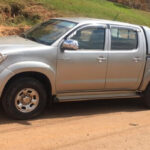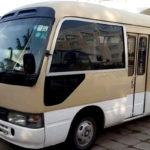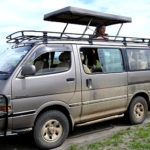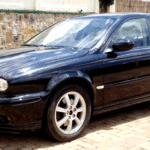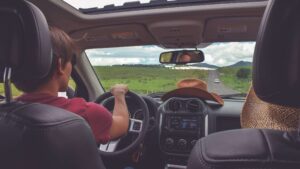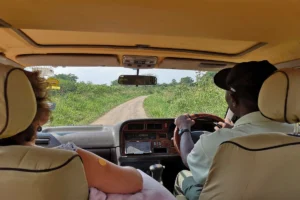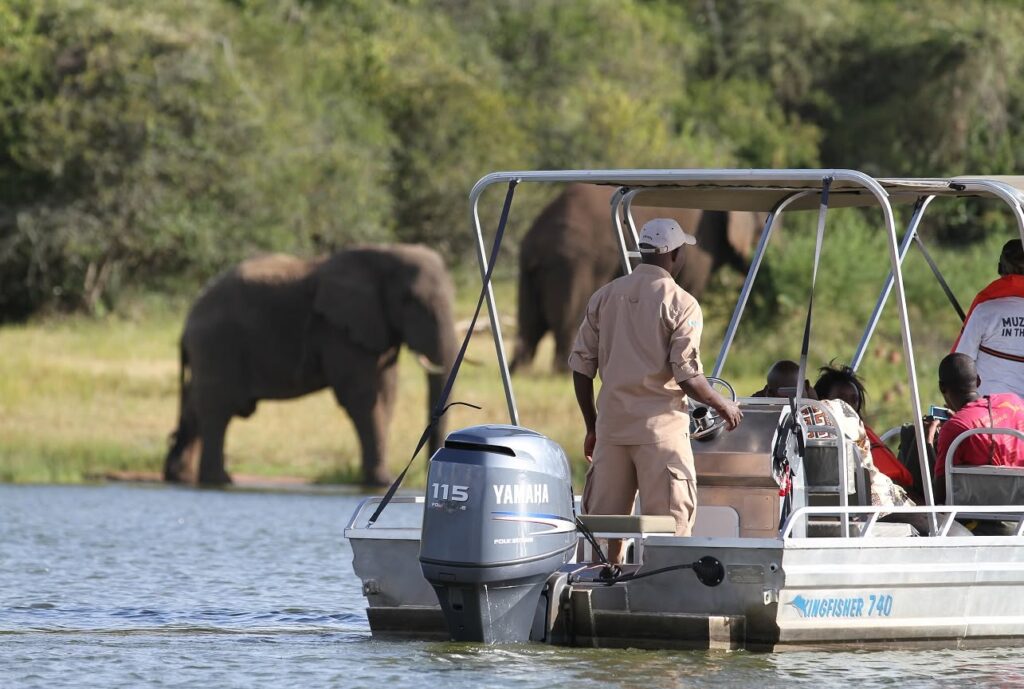
While Rwanda’s terrestrial wildlife experiences like gorilla trekking and game drives capture most headlines, the country’s boat safaris offer a uniquely tranquil and rewarding way to encounter wildlife. Gliding silently across mirror-calm lakes reveals perspectives impossible from land, bringing you eye-level with hippos, crocodiles, and waterbirds while observing elephants, buffaloes, and antelopes drinking along pristine shorelines. Boat safaris in Rwanda combine relaxation with exceptional wildlife viewing, creating unforgettable aquatic adventures.
Where to Experience Boat Safaris in Rwanda
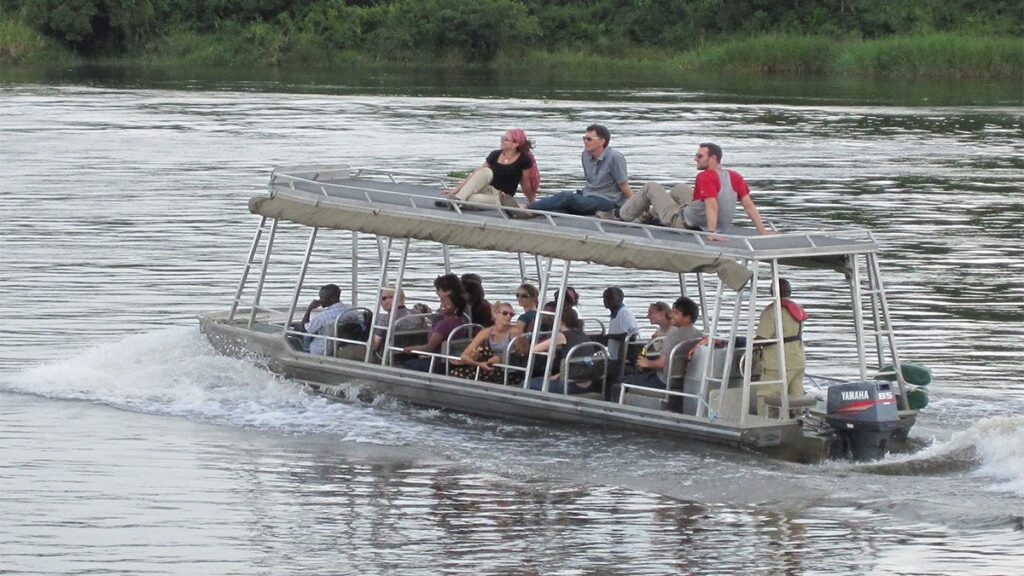
Akagera National Park stands as Rwanda’s premier boat safari destination. Lake Ihema, the park’s second-largest lake and most accessible for boat trips, hosts remarkable concentrations of wildlife along its 90-kilometer shoreline. The lake’s protected waters create a haven for hippos, crocodiles, and waterbirds, while the surrounding landscape attracts terrestrial animals seeking water during dry seasons.
Boat safaris on Lake Ihema typically depart from near Akagera Game Lodge or can be arranged through park headquarters. These guided excursions last 1-2 hours and accommodate small groups, ensuring intimate wildlife encounters without the noise and crowds associated with larger vessels on famous safari lakes elsewhere in Africa.
Lake Kivu, Rwanda’s largest lake along the western border with the Democratic Republic of Congo, offers a completely different boat safari experience. While wildlife viewing here focuses on birdlife rather than large mammals, the lake’s scenic beauty, numerous islands, and opportunities for swimming and kayaking make boat trips memorable complements to any Rwanda itinerary.
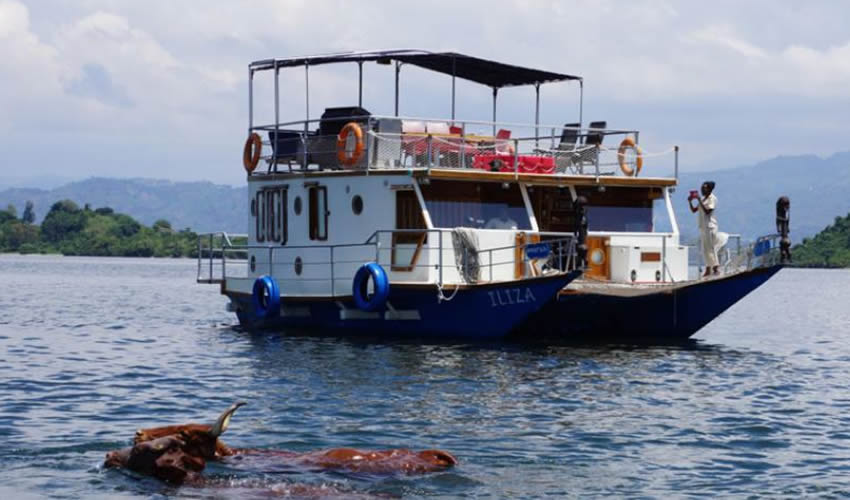
Wildlife Encounters on Boat Safaris
Hippos: Lake Ihema hosts one of Africa’s densest hippo populations, with pods numbering dozens of individuals visible during most boat safaris. Watch these massive semi-aquatic mammals lounging in shallow waters, only their eyes, ears, and nostrils breaking the surface. During boat approaches, hippos often yawn—displaying their enormous tusks in what appears threatening but actually signals nervousness. Early morning and late afternoon trips offer the best hippo viewing as they’re most active during cooler hours.
Nile Crocodiles: These prehistoric predators bask motionlessly on muddy banks and rocky outcrops, soaking up the sun to regulate body temperature. Boat safaris allow close approaches impossible on foot, revealing their impressive size—some Akagera crocodiles exceed four meters in length. Patient observers might witness crocodiles sliding into water or catching fish, though dramatic hunting scenes remain rare.
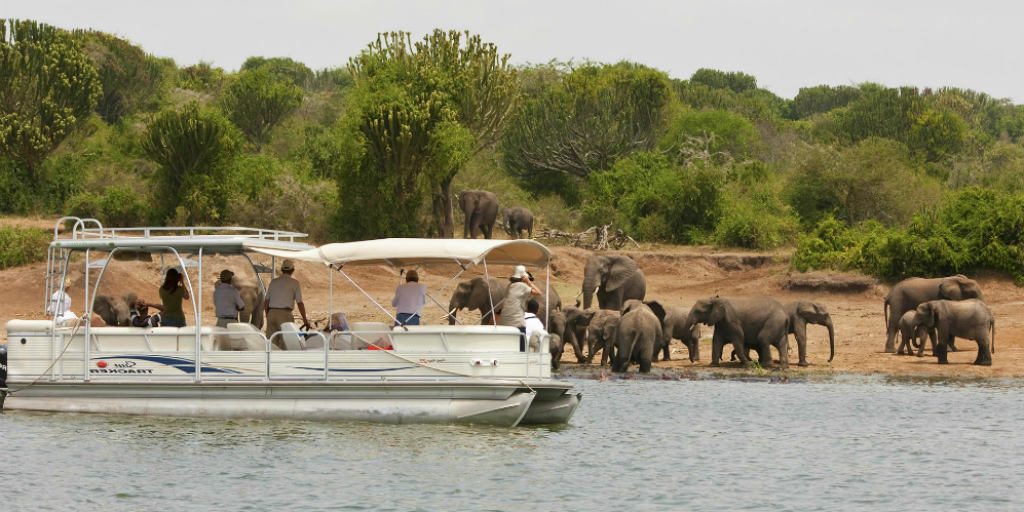
Waterbirds: Over 100 waterbird species frequent Lake Ihema’s shores and islands, creating paradise for birdwatchers and photographers. African fish eagles perch prominently on dead trees, occasionally swooping to snatch fish with remarkable precision. Pied kingfishers hover before plunge-diving, while cormorants dry their wings in characteristic spread-eagle poses. Herons, egrets, ibises, and storks wade through shallows, and the rare shoebill stork occasionally appears in northern lake sections—a sighting that thrills serious birders.
Shoreline Wildlife: The unique advantage of boat safaris is observing terrestrial animals from water. Elephants wade belly-deep to drink and bathe, buffaloes gather in massive herds at watering points, and various antelope species approach cautiously to drink. This aquatic perspective allows closer approaches than possible in vehicles, as animals perceive less threat from boats.
Best Times for Boat Safaris
Early morning departures around 6:00-7:00 AM offer calm waters, soft golden light for photography, and active wildlife. Late afternoon trips from 4:00-5:00 PM provide equally stunning conditions with the added spectacle of dramatic African sunsets reflecting off the water.
The dry season from June to September concentrates wildlife around permanent water sources, making this period optimal for boat safaris. However, wet season trips from October to May showcase lush green landscapes, migratory birds, and fewer tourists sharing the experience.
What to Bring and Expect
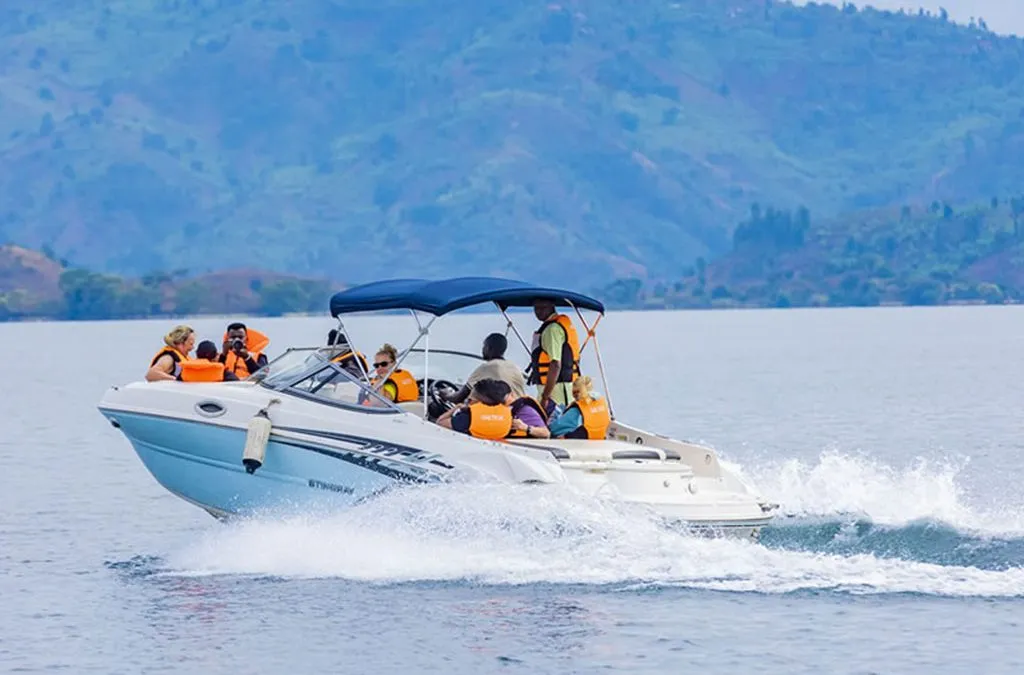
Essential items include sun protection (hat, sunscreen, sunglasses), binoculars for distant wildlife viewing, cameras with zoom lenses for photography, and light jackets as mornings can be cool on the water. Boats provide life jackets and experienced guides who navigate safely while sharing fascinating information about ecosystems, wildlife behavior, and conservation efforts.
Most boat safaris maintain respectful distances from wildlife, following strict guidelines that prioritize animal welfare over tourist proximity. Engines run quietly, and captains maneuver carefully to avoid disturbing hippos and crocodiles, ensuring safe, ethical wildlife encounters.
Combining Boat and Land Safaris
The ideal Akagera experience combines traditional game drives with boat safaris, offering comprehensive wildlife viewing across different ecosystems. Many visitors schedule morning game drives followed by midday boat trips, or vice versa, maximizing wildlife encounters while enjoying varied perspectives of this remarkable park.
Boat safaris in Rwanda provide peaceful, intimate wildlife experiences that perfectly complement the country’s famous terrestrial adventures, proving that some of Africa’s best wildlife viewing happens not on land, but floating gently across its beautiful lakes.
To book a Rwanda boat safari adventure on Lake Ihema or sunset cruise on Lake Kivu- simply contact us now by sending an email to [email protected] or call us now on +256-700135510 to speak with the reservations team.
